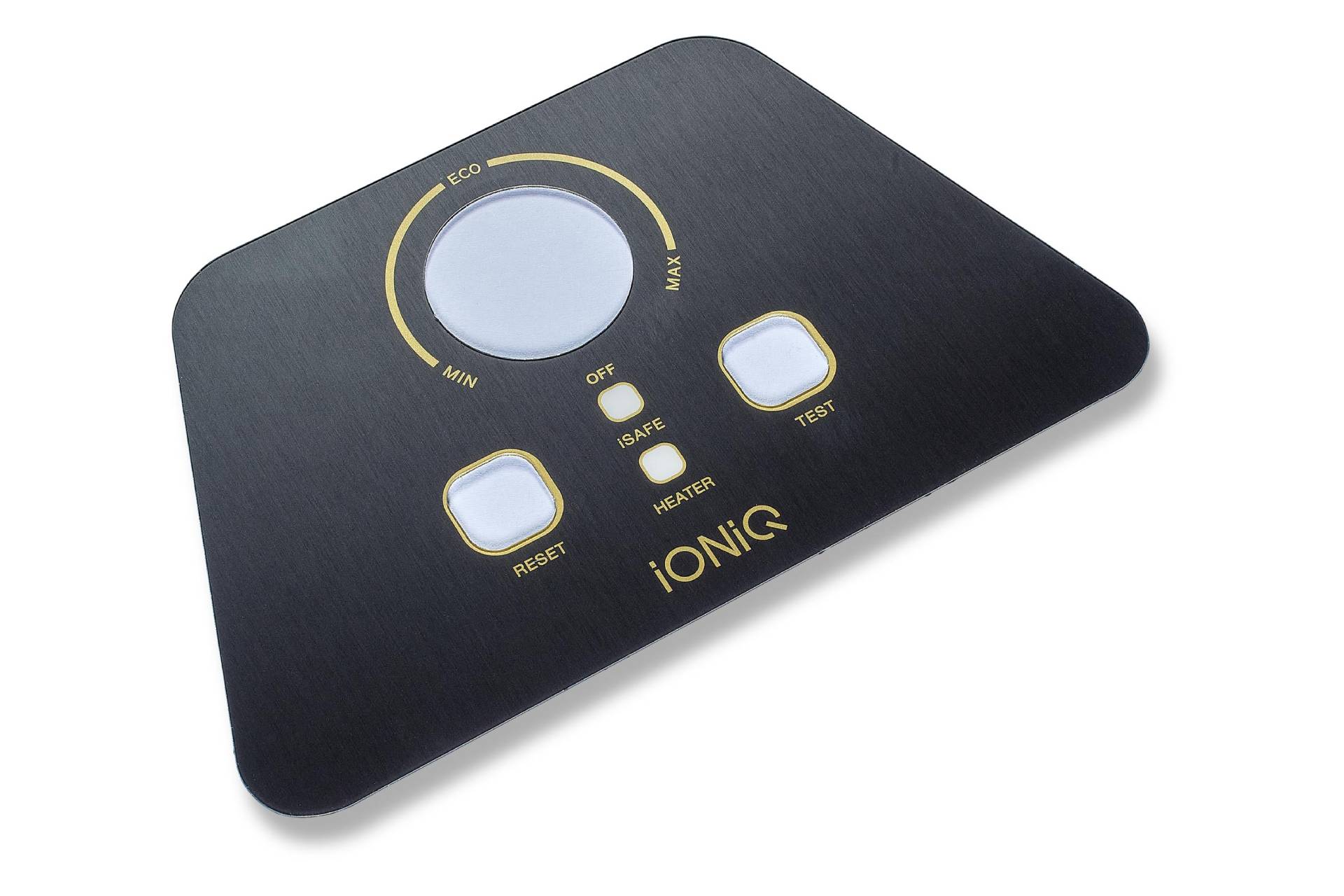Just How Plastic Nameplates Are Made: A Comprehensive Guide to Their Manufacturing Refine
The production of plastic nameplates involves several accurate actions, beginning from the selection of ideal products to the last complements. Each stage is essential, making certain the item satisfies specific needs for longevity and aesthetics. Numerous manufacturing methods play a substantial function in crafting these nameplates. Understanding these processes can clarify the complexities behind what could look like an easy product. What variables add to the top quality and personalization of these nameplates?
Understanding Plastic Materials Made Use Of for Nameplates

The Design Refine: From Idea to Prototype
The design process for plastic nameplates begins with a clear concept that overviews the overall development. Designers collaborate with customers to specify the function, design, and details requirements of the nameplate. This initial phase consists of conceptualizing sessions, laying out concepts, and choosing shades and font styles that line up with branding goals.Once the concept is developed, designers make use of computer-aided layout (CAD) software to create detailed electronic representations. These models permit visualization and adjustments prior to relocating forward. Responses from stakeholders is integral during this phase, as it assists fine-tune the design to satisfy expectations.After finalizing the electronic model, a physical design may be created, commonly with methods like 3D printing. This substantial depiction makes it possible for more analysis of aesthetics and performance. Overall, the layout procedure is a necessary step that lays the structure for the effective production of premium plastic nameplates.
Cutting and Shaping the Plastic
In the cutting and shaping phase of plastic nameplate manufacturing, the option of products plays a crucial function in identifying the end product's quality and toughness (Plastic Nameplates). Numerous precision reducing techniques, such as laser cutting and CNC machining, guarantee that the plastic is shaped with precision and consistency. This combination of mindful material choice and progressed reducing methods is essential for producing top notch nameplates

Material Selection Refine
Choosing the ideal product is necessary for producing top notch plastic nameplates. Numerous kinds of plastics are available, each offering unique advantages and characteristics. Typical choices include acrylic, polycarbonate, and PVC. Polymer is preferred for its clarity and UV resistance, making it perfect for exterior applications. Polycarbonate, known for its durability and impact resistance, appropriates for settings that call for enhanced protection. PVC is typically picked for its cost-effectiveness and flexibility in layout. The selection process also thinks about elements such as surface, density, and color finish, which can substantially influence the final look and functionality of the nameplate. Eventually, the chosen material has to straighten with the meant usage and aesthetic objectives of the plastic nameplate.
Accuracy Cutting Methods
While selecting the appropriate product prepares, precision reducing strategies play an important role in shaping the plastic nameplates into their final kinds. Various techniques, including laser cutting, CNC milling, and die reducing, are employed to attain accuracy and uniformity. Laser cutting utilizes focused light to generate clean edges and detailed layouts, perfect for complex patterns. CNC milling offers adaptability by getting rid of excess material with accuracy, fitting various densities and shapes. Die cutting, on the other hand, enables mass production of uniform items, boosting performance. Each technique is picked based on the layout requirements and the wanted coating, making certain that the end product satisfies quality requirements and customer assumptions while maintaining sturdiness and aesthetic allure.
Printing Strategies for Modification
Exactly how can makers accomplish exact and lively layouts on plastic nameplates? The response depends on various printing methods tailored for modification. Digital printing has actually gained appeal because of its capability to create detailed layouts and high-resolution photos straight onto plastic surface areas. This technique permits for quick turnaround times and minimal setup costs, making it excellent for brief runs and individualized orders.Screen printing remains an additional widely used method, especially for larger quantities. It entails producing a stencil and using layers of ink, leading to abundant shades and sturdiness. UV printing, which uses ultraviolet light to cure the ink, is likewise reliable, providing excellent attachment and resistance to fading.Additionally, pad printing supplies versatility for irregularly shaped nameplates, enabling thorough layouts on tough surface areas. These printing techniques enable manufacturers to satisfy diverse client needs while ensuring quality and durability in their plastic nameplate products.
Surface Area Therapies and Finishing Options

High Quality Control Actions in Production
Guaranteeing the highest requirements of high quality control during the manufacturing of plastic nameplates is vital for keeping item stability and client complete satisfaction. Manufacturers carry out extensive evaluation methods at numerous stages of the production process. Initially, resources undergo detailed screening to verify they meet specifications for sturdiness and shade consistency. During the molding phase, automated systems monitor parameters such as temperature level and stress to stop defects.In addition, aesthetic evaluations are performed to recognize any surface flaws or misalignments. As soon as the nameplates are generated, they are subjected to useful tests, including adhesion examinations for published aspects and tension tests for toughness. Quality control groups often utilize statistical sampling approaches to analyze sets, seeing to it that any type of discrepancies from standards are quickly resolved. This detailed technique not only improves item high quality yet additionally promotes trust fund with customers, affirming the producer's commitment to quality in every nameplate produced.
Packaging and Distribution of Finished Nameplates
The product packaging and circulation of finished plastic nameplates are critical action in More hints guaranteeing they reach clients in perfect problem. Different product packaging materials are picked to safeguard the nameplates throughout transportation, while shipping techniques are very carefully chosen based upon efficiency and cost-effectiveness. Furthermore, efficient storage space options are implemented to maintain top quality until the nameplates are delivered.
Packaging Products Used
When dispersing ended up plastic nameplates, choosing appropriate packaging materials is necessary to guarantee their security throughout transportation. Typically employed products include bubble cover, foam padding, and cardboard boxes, all developed to cushion the nameplates against influences and shocks. Bubble wrap gives a flexible obstacle, while foam cushioning assurances that nameplates remain firmly in area, decreasing the threat of scrapes or breakage. Additionally, sturdy cardboard boxes are made use of to include the nameplates, providing architectural assistance and defense from outside aspects. Labels may be related to show managing directions or delicate components, better boosting security during transport. Generally, using top quality packaging products substantially adds to the integrity and presentation of the finished plastic nameplates upon arrival at their location.
Shipping Approaches Utilized
Efficient distribution of ended up plastic nameplates depends on different delivery approaches that assure protected and timely shipment. Business often utilize copyright services, freight shipping, and postal services, depending upon the size, weight, and location of the bundles. For regional shipments, courier solutions supply quick transit, making sure nameplates reach clients quickly. For bigger orders, freight shipping is preferred, utilizing vehicles or shipping containers to carry bulk amounts efficiently. Postal solutions serve as a cost-efficient option for smaller deliveries, specifically for domestic shipments. All shipping methods prioritize safety packaging to stop damages during transportation. Tracking systems are likewise utilized to keep an eye on shipments, providing customers with real-time updates and confidence relating to the status of their orders.
Storage Solutions Implemented

Often Asked Questions
What Kinds Of Organizations Commonly Use Plastic Nameplates?
Plastic nameplates are generally their explanation used by different organizations, consisting of offices, factories, health centers, and institutions. These nameplates serve crucial functions such as recognition, info display, and branding, adding to organizational effectiveness and specialist appearance throughout diverse settings.
For how long Does the Entire Production Refine Take?
The manufacturing procedure period varies based on intricacy and quantity, typically ranging from a few days to numerous weeks. Factors affecting this timeline consist of layout authorization, material availability, and production techniques employed by the firm.
Can Plastic Nameplates Be Recycled After Use?
Plastic nameplates can be recycled, supplied they are made from recyclable materials. However, the availability of reusing programs and local guidelines may influence their recyclability. Proper disposal techniques are vital to ensure reliable recycling.
What Are the Environmental Effects of Plastic Nameplate Production?
The ecological effects of plastic nameplate manufacturing include carbon discharges, source deficiency, and pollution from producing procedures. Plastic Nameplates. Additionally, inappropriate disposal adds to plastic waste, adversely affecting ecological communities and wild animals, highlighting the requirement for sustainable practices
Are There Any Safety Issues With Plastic Nameplates?
Safety issues concerning plastic nameplates largely include potential chemical direct exposure during production and the risk of products weakening over time, which might result in harmful substances being released, affecting both human wellness and the setting. While different materials can be used for nameplates, plastic stays a prominent option due to its flexibility and resilience. In the cutting and shaping stage of plastic nameplate manufacturing, the choice of products plays an essential duty in identifying the last item's top quality and durability. Selecting the best product is essential for producing top quality plastic nameplates. While selecting the ideal product lays the foundation, precision reducing techniques play an important duty in shaping the plastic nameplates right into their last kinds. When distributing ended up plastic use this link nameplates, selecting appropriate product packaging materials is vital to guarantee their protection throughout transportation.